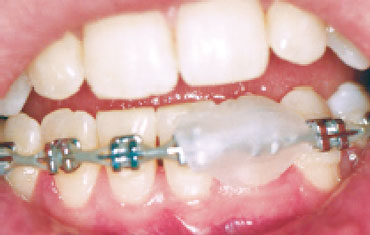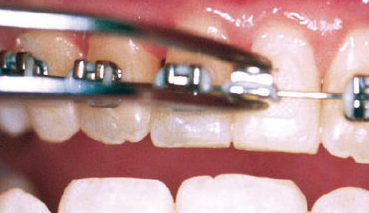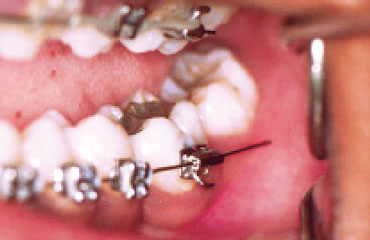
We know that orthodontic emergencies are never convenient or timely. The good news is that true orthodontic emergencies are rare, and we're always available whenever you need us. As a general rule, you should call our office if you have a broken appliance or are experiencing an abnormal amount of discomfort. We'll evaluate the urgency of the problem and schedule an appointment to take care of any problems you may be experiencing.
You might be surprised to learn that you may be able to solve many problems yourself temporarily until you can get to our office. Here are some guidelines to help you understand the difference between a major orthodontic emergency and a minor issue:
Acute, Direct Injury To Mouth, Jaw or Teeth
Whether undergoing orthodontic care or not, if you injure your mouth, jaw, or teeth, you should seek immediate care with your orthodontist and/or dentist. If the injury affects your orthodontic appliances, they may need adjustment or possible replacement, depending on the extent of the injury.
Broken or Distorted Removable Orthodontic Appliances
A distorted or broken removable appliance should be adjusted or replaced as soon as possible and should not be worn until the adjustment or repair is made. Allowing your appliance to remain damaged for an extended period of time may result in disruptions to your treatment plan.
The following solutions may help you relieve discomfort for minor orthodontic issues:
Irritation of Lips or Cheeks

Sometimes new braces can be irritating to the mouth, especially when eating. A small amount of non-medicinal relief wax makes an excellent buffer between the braces and your mouth. Simply pinch off a small piece and roll it into a ball the size of a small pea. Flatten the ball and place it completely over the area of the braces causing irritation.
Loose Bracket or Band

If your bracket or band is still attached to the wire, you should leave it in place and put wax on it if needed for comfort. If the bracket or band can be removed easily, please don't discard it! Place it in an envelope and bring it to your emergency appointment for repair.
Loose or Protruding Wire

Occasionally, the end of a wire will work itself out of place and cause irritation of the gum. A broken archwire, or one that is irritating the gum or cheek, needs to be seen as soon as possible for replacement or adjustment. To temporarily relieve discomfort, use a Q-tip or pencil eraser to push the wire so that it is flat against the tooth. If the wire cannot be moved into a comfortable position, cover it with relief wax. If the wax doesn't help, as a last resort use a small fingernail clipper to clip the wire behind the last tooth to which it is securely fastened. If the end of the wire is still sharp place wax on it.
General Soreness

When you get your braces on, you may feel general soreness in your mouth, and teeth may be tender to biting pressures for three to five days. Stick to a soft diet until your teeth do not hurt to chewing. Irritated gums and other sore spots can be relieved by rinsing your mouth with a warm salt-water mouthwash. Dissolve one teaspoonful of salt in eight ounces of warm water, and rinse your mouth vigorously. If the tenderness is severe, take Acetaminophen (Tylenol) or whatever you normally take for headache or similar discomfort. Aspirin, Ibuprofen (Motrin, Advil) and Naproxen Sodium (Naprosyn, Anaprox) actually slow the tooth movement, so it is not advisable to use them frequently while wearing braces.
The lips, cheeks, and tongue may become irritated for one to two weeks as they learn a new posture and become accustomed to the surface of the braces. Prompt relief may be achieved by applying a small amount of topical anesthetic (such as Orabase or Ora-Gel) directly to the sore area. You can also put wax on the braces to lessen the temporary discomfort.
If you still have questions, give us a call or visit our Caring For Your Appliances page on our website. Remember . . . The team at Bel Air Orthodontics is here to help!
